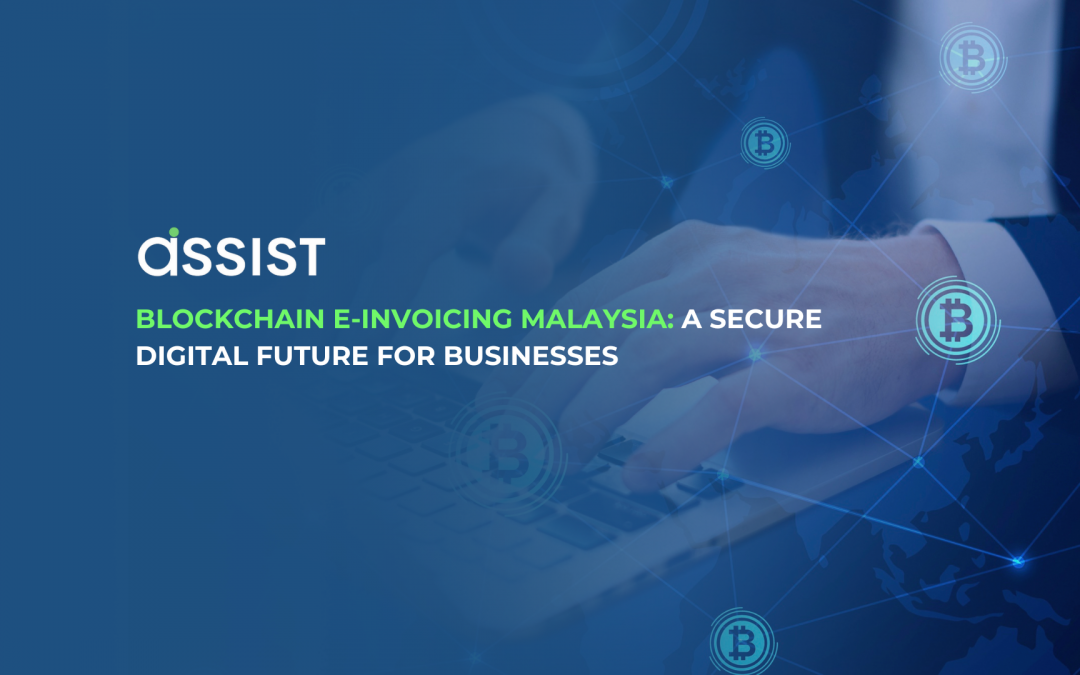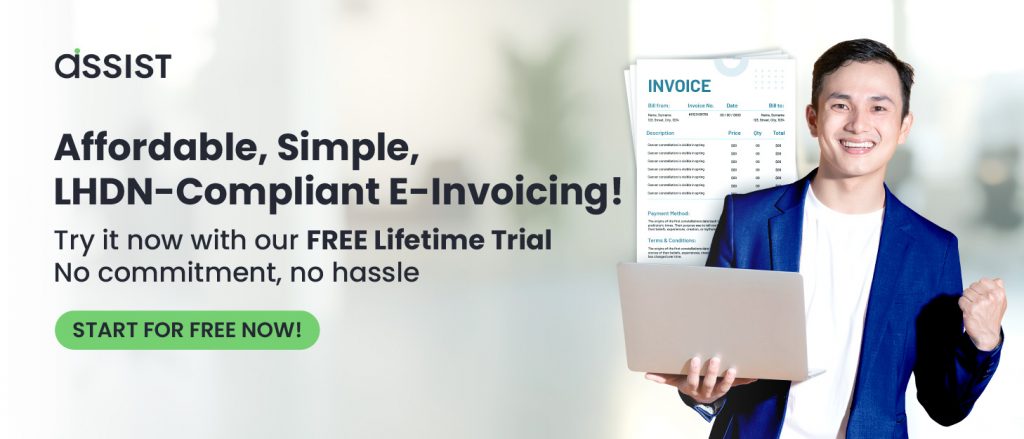Malaysia’s businesses are rapidly embracing digital transformation, with e-invoicing at the forefront of this shift. While it streamlines invoicing and ensures compliance, concerns over security, transparency, and fraud prevention remain. Blockchain technology addresses these challenges by offering a tamper-proof, automated, and transparent invoicing system. This article explores how blockchain is revolutionizing e-invoicing in Malaysia and why businesses should adopt it.
Understanding E-Invoicing in Malaysia
What is E-Invoicing?
E-invoicing is the electronic generation, exchange, and processing of invoices between businesses, government agencies, and customers. Unlike traditional invoicing, which relies on physical documents or PDFs sent via email, e-invoicing uses structured digital formats, making it easier to track and automate transactions.

Malaysia’s Regulatory Push
The Malaysian government, through the Lembaga Hasil Dalam Negeri (LHDN), has introduced policies encouraging businesses to adopt e-invoicing. With the move towards e-invoicing mandates, companies need to comply with government standards to streamline tax reporting and reduce errors.
Current Adoption Trends
While large enterprises have been quick to embrace e-invoicing, many SMEs still rely on manual processes due to a lack of awareness or perceived complexity. However, with growing incentives and digital transformation programs, the adoption rate is expected to surge.
What is Blockchain Technology?
Breaking Down Blockchain
Blockchain is a decentralized digital ledger that records transactions in a tamper-proof and transparent manner. Unlike traditional databases controlled by a single entity, blockchain distributes data across a network of computers, ensuring immutability and enhanced security.
Key Features of Blockchain
Decentralization – No single point of control, reducing risks of manipulation
Immutability – Once data is recorded, it cannot be altered
Transparency – Every transaction is verifiable by network participants
Smart Contracts – Self-executing contracts that automate processes when predefined conditions are met
Beyond Cryptocurrency
While blockchain is widely associated with Bitcoin and cryptocurrencies, its applications extend beyond finance. It is now revolutionizing supply chains, healthcare, and digital invoicing.
How Blockchain Enhances E-Invoicing
Fraud Prevention
With blockchain, invoices are time-stamped and immutable, making it nearly impossible for fraudulent alterations or duplicate invoicing.
Real-Time Verification
Transactions can be verified instantly by all parties involved, eliminating the need for intermediaries and speeding up the payment process.
Smart Contracts for Automation
Using smart contracts, payments and approvals can be automated based on predefined rules, reducing administrative workload and enhancing efficiency.
Benefits of Blockchain-Based E-Invoicing for Businesses
| Benefit | Description |
|---|---|
| Enhanced Security | Protects against invoice fraud and unauthorized modifications |
| Reduced Costs | Eliminates the need for third-party verification and manual processing |
| Faster Payments | Automates transactions, leading to quicker cash flow |
| Improved Compliance | Ensures tax and regulatory adherence with digital transparency |
| Stronger Business Relationships | Builds trust between buyers and suppliers through verifiable transactions |
Challenges and Considerations in Implementation
SME Adoption Barriers
Many small businesses may struggle with the technical know-how or costs associated with blockchain integration.
Regulatory and Compliance Concerns
As blockchain operates in a decentralized manner, businesses must ensure their solutions align with Malaysian financial regulations.
Integration with Existing Systems
Companies must ensure seamless integration between blockchain-based invoicing and existing ERP or accounting software.
Conclusion
The integration of blockchain and e-invoicing marks a significant step toward a more secure, efficient, and transparent financial ecosystem in Malaysia. As businesses strive to comply with digital invoicing mandates and enhance security, blockchain provides a future-proof solution.
If you’re looking for a seamless and secure e-invoicing solution, consider Assist.biz. With robust digital invoicing tools and compliance support, Assist.biz helps businesses transition smoothly into the future of automated invoicing.
Frequently Asked Questions(FAQ)
What is blockchain e-invoicing?
Blockchain e-invoicing combines e-invoicing technology with blockchain’s secure and transparent ledger. It ensures invoices are tamper-proof, automated, and easily verifiable.
How does blockchain improve e-invoicing security?
Blockchain prevents fraud by creating immutable records that cannot be altered. Every transaction is time-stamped and verifiable, reducing invoice duplication and unauthorized modifications.
Is blockchain e-invoicing mandatory in Malaysia?
No, but e-invoicing itself is becoming mandatory under government regulations. Blockchain integration is an optional enhancement that businesses can use for greater security and efficiency.
What are the benefits of blockchain-based e-invoicing?
Enhanced security with tamper-proof records
Faster payment processing with smart contracts
Lower costs by reducing manual processing and intermediaries
Improved compliance with transparent transaction logs
Can SMEs in Malaysia afford blockchain e-invoicing?
Yes, many affordable blockchain-based solutions are emerging. While initial adoption may seem complex, cloud-based platforms like Assist.biz help businesses integrate seamlessly.
How can I start using blockchain e-invoicing?
You can start by using an e-invoicing platform like Assist.biz, which provides compliance-friendly digital invoicing with enhanced security features.


Recent Comments